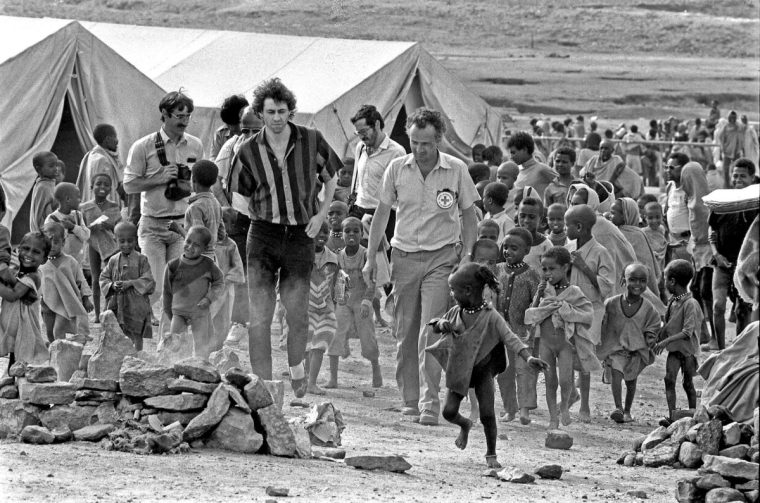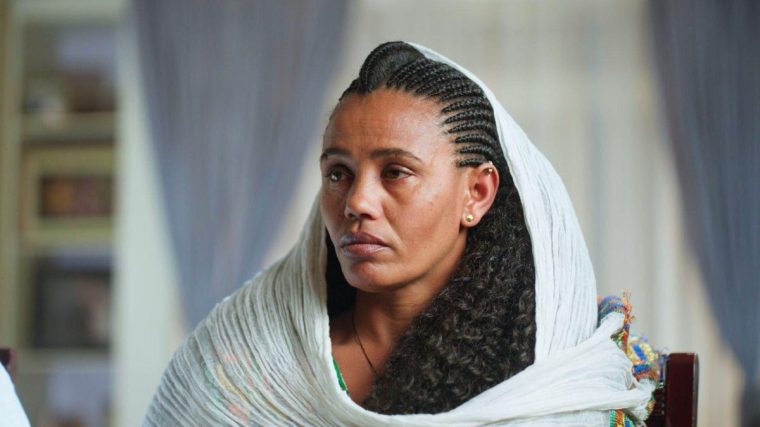This three-part film dares to ask what Ethiopians really thought of Band Aid’s “Do They Know It’s Christmas?”
Anyone who believes civilisation peaked somewhere between Bananarama’s “Cruel Summer” and Spandau Ballet’s “Through the Barricades” will lap up Live Aid At 40: When Rock ‘n’ Roll Took on the World, a new series marking the anniversary of the famous charity concert.
Bob Geldof, the F-bomb-dropping driving force behind both the 1984 Band Aid single and the follow-up live event at Wembley, is entertainingly potty-mouthed while looking – at age 73 – as shaggily unkempt as in his 80s heyday.
He is joined by enough stars to populate an entire season of Top of the Pops, including Sting, who recalls, with a degree of alarm, walking down the King’s Road in Chelsea when Geldof came bounding up with fire in his eyes and cajoled him into signing up to Band Aid. In archive footage from the “Do They Know It’s Christmas?” sessions, the pop stars are all impossibly young with fantastic hair. Or, in Bono’s case, an amazing hat. It’s a big sweary slice of rockumentary heaven.

The first of three episodes focuses on the charity single and its American companion piece, “We Are the World”, written by Lionel Richie and Michael Jackson. Geldof talks about how, just before Band Aid, his career fronting the Boomtown Rats had been winding down as the post-punk band were surpassed by a new generation of pop stars. He had been persuaded to go to Africa by journalists who needed an angle to keep the famine in the news, even though he knew it had the potential to turn into a circus.
Here, he is genuinely anguished as he remembers that visit and is aware that he must have come across as a crusading figure. “Captain Africa, Saint Bob,” he recalls of the headlines. “At the same time, if I don’t do that, that story is gone. They want you to weep, to cry, to pick up the infants as if they’re just objects for their story. The horrible thing is they weren’t wrong.”
His discomfort was evident as he was required to walk around a famine aid centre, trailed by desperate children. Later, in a meeting with Ethiopia’s Marxist dictator, Mengistu Haile Mariam, Geldof was unable to make nice and unleashes the C-word when the despot tries to shake down Band Aid for £1m.
But Live Aid at 40 isn’t a one-sided celebration of Geldof. We hear from Ethiopian politician Dawit Giorgis, who reflects how people in his country were offended by the line “Do they know it’s Christmas?”. “They just didn’t do their homework,” he says. “Ethiopians are the oldest Christians in the world.” Of course they knew it was Christmas.

The fascinating series also attempts to rectify Live Aid’s lack of diversity in 1985. Even at the time, the event was criticised for not featuring enough black artists on the bill – a subject that is brought up in the second episode, when Geldof says that, had there been a Stormzy equivalent in 1985, he would have gone down on his hands and knees begging him to perform. He also points out that Michael Jackson and Prince were asked to participate but passed.
But the most striking stories come from those away from the spotlight. Among them is Birhan Woldu, whose miraculous recovery as a baby from near-certain death in the Ethiopian famine was caught on camera. “It was,” recollects her father of her sudden return to life, “as though the heavens had opened.” It is important that such voices are heard.
Live Aid is a great pop story, but it was also a response to a terrible human tragedy. The BBC’s excellent film never loses sight of that fact.
‘Live Aid at 40: When Rock ‘n’ Roll Took on the World’ is streaming on BBC iPlayer
